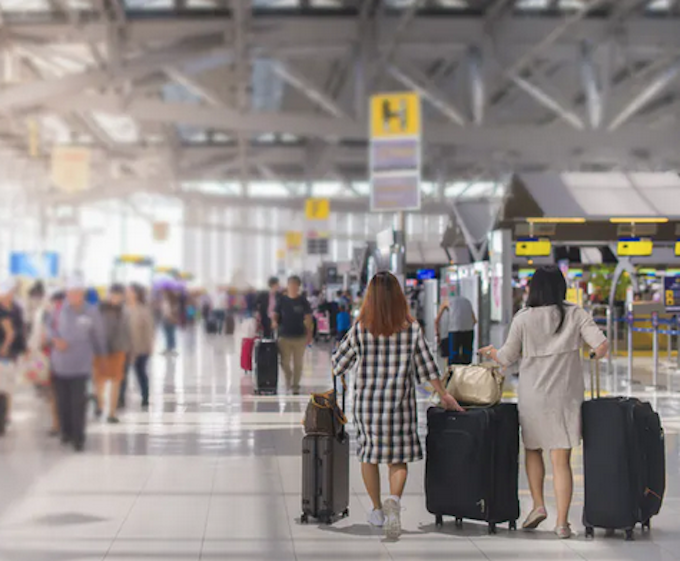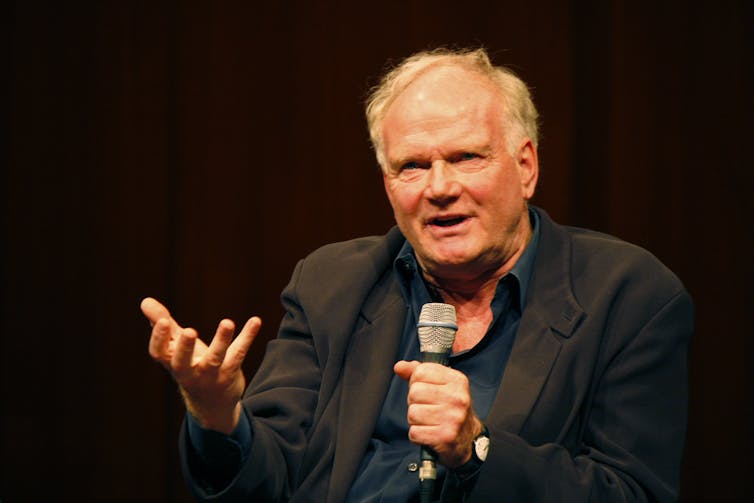
ANALYSIS: By Vissia Ita Yulianto of Universitas Gadjah Mada and Jian-bang Deng of Tamkang University
Before the covid-19 pandemic started in late 2019, the free movement of billions of people – including tourists, business people, digital nomads, refugees and students – across nations was a common part of life.
In 2018, the number of international tourist arrivals rose 6 percent over the previous year and reached an all-time high of 1.4 billion trips.
About 272 million people are residing outside their birth country. This number is projected to reach 405 million by 2050.
READ MORE: Al Jazeera coronavirus live updates – US deaths pass 80,000
However, as the pandemic rages on, infecting more than 4.1 million people with more than 285,000 deaths worldwide, governments have imposed travel bans and closed their borders to control the spread of the virus.
More than 93 percent of the global population reside in countries where cross-border travel is restricted. Scientists have suggested some restrictions may need to continue until at least 2022.
Shutting down businesses and social gatherings has left nearly zero physical mobility and severely disrupted the global economy. In light of this, one can’t help but wonder: could COVID-19 spell the end of international mobility as we know it?
Rethinking the limits of a ‘global mobility regime’
Business activity is faltering at rates never before seen. The World Economic Outlook projects the global economy will contract by 3 percent, plummeting around 6.3 percentage points from January 2020. The International Monetary Fund has declared this the worst recession since the Great Depression.
The coronavirus requires us to re-evaluate whether we want to continue living under this “global mobility regime” – where a great deal of economic activity relies heavily on international and regional travel.

The late German modernity theorist Ulrich Beck and British sociologist Anthony Giddens argued that intertwining elements of modernity such as industrialisation, international mobility and globalisation have created a society susceptible to a variety of new risks and unforeseen consequences.
These vulnerabilities – which are “systematic and cause irreversible harms”, in Beck’s words – range from international ecological disaster and terrorism to global health pandemics. The last one is evident in the current crisis.
Extending beyond its origin in Wuhan, China, the coronavirus has spread to cause catastrophic damages across borders, nations, generations and social strata.
The same advances that have helped us travel across borders at speeds and volumes never before imagined are increasing the deadliness and global reach of the virus.
Worldwide disruptions in cross-border labour
A human aspect of this crisis can be seen in how lockdowns have stranded working migrants around the world.
In Tunisia, for instance, migrant workers who came in from mostly neighbouring sub-Saharan countries struggled to pay rent and food as jobs become scarce.
Recently, US President Donald Trump announced plans to stop issuing new work visas and green cards indefinitely.
These developments have led the World Bank to project a more than 20% decrease in global remittances – the money migrants send to their families back home – from US$554 billion in 2019 to US$445 billion in 2020.
These funds provide an economic lifeline to millions of poor households around the world.
Not only that, the coronavirus might also have fundamentally changed the prevailing model of global production.
One of its basic principles is making use of land, labor and capital as efficiently as possible. This has created a global factory network that manufactures many goods in optimum locations at great prices.
However, as the virus spreads and forces nations to impose economy-crippling lockdowns, this has severely disrupted industries that rely heavily on these global supply chains. This has even impacted essential production needed to fight the virus.
For instance, New York City’s hospitals experienced a shortage of ventilators last month. Italy’s hospitals also had problems getting enough face masks for their health workers.
Envisioning global movement beyond the pandemic
The pandemic has undoubtedly affected our model of international mobility. Only by figuring out the right responses and changes will we as a global community become more resilient once it ends.
If we keep today’s global mobility principles as they were – with nations facilitating the free movement of people and goods without a global framework to anticipate disruptive events such as pandemics – we risk repeating or even worsening the spread of deadly future viruses.
Every government, organisation and individual should be a lot more prepared to face the uncertainties of the era beyond the pandemic.
We don’t know how, though. Setting up an “International Travel Organisation” that oversees the rules and more importantly reduces the risks of cross-border mobility – as American scholar Rey Koslowski suggested in 2011 – might be a plausible idea.
The covid-19 pandemic will not end the free movement of people, goods and finance.
However, it will hopefully change the way global institutions govern cross-border flows of people and trade, driving the world to a “neo-global mobility regime” that’s more resistant to international ecological disaster and global pandemics.![]()
Dr Vissia Ita Yulianto is a socio-cultural anthropologist of the Centre for Southeast Asian Social Studies, Universitas Gadjah Mada, in Jogyakarta, Indonesia, and Dr Jian-bang Deng is professor of sociology, Tamkang University. This article is republished from The Conversation under a Creative Commons licence. Read the original article.













































